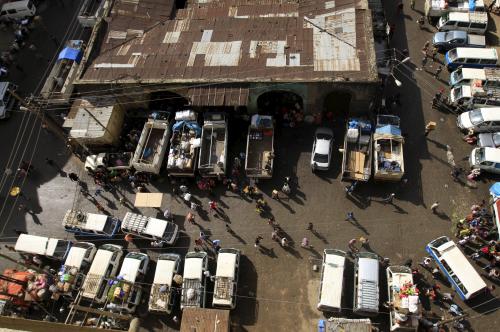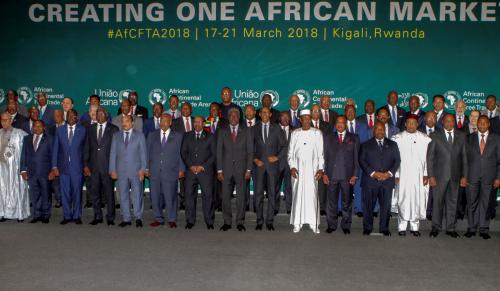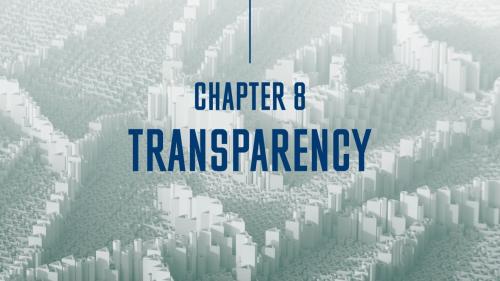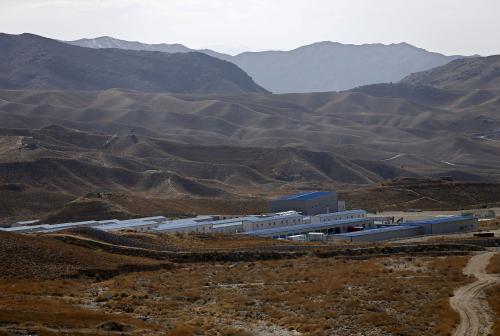The African Continental Free Trade Area (AfCFTA) agreement officially enters into force
On Thursday, May 30, the African Continental Free Trade Area (AfCFTA) agreement officially came into force, though much work remains to be done. Its architects hope that the deal will encourage inter-African trade, currently at 17 percent of all African exports, by eliminating complex and disjointed trade agreements across the region. In addition to creating a massive market, it also eliminates 90 percent of tariffs. Proponents also hope it will encourage outside investment by creating and easing entry into a larger, single, seamless market for goods and services.
Despite this massive step, a number of details still need to be worked out among its members, including specific provisions around market access for goods and services, intellectual property, regulatory issues, and rules of origin. In addition, Benin, Eritrea, and Nigeria (the continent’s biggest economy) have yet to sign on. Once all 55 countries have joined, the free trade area will cover 1.2 billion people and over $3 trillion in GDP.
For more on this historic step, see this week’s Figure of the week, “With AfCFTA officially in force, Africa is now the largest free trade area.”
For more on the next plans for the negotiations, see Landry Signé and Colette van der Ven’s recent policy brief, “Keys to success for the AfCFTA negotiations.”
South Africa and Senegal take action on climate change
On Sunday, May 26, South African President Cyril Ramaphosa signed a carbon tax to be levied on greenhouse gases from fuel combustion and industrial processes. The tax will begin on June 1 and has the goal of reducing South Africa’s greenhouse gas emissions to the targets set in the 2015 Paris Agreement on climate change. The tax will be introduced in phases: The first phase will run until December 2022 with a tax rate of about $8.34 per ton of carbon dioxide, although planned tax breaks will significantly reduce the effective tax rate.
South Africa, which relies largely on coal for energy, is the 14th largest polluter in the world and the largest in Africa. The country has also faced environmental challenges, with recent floods in KwaZulu-Natal and severe drought in Cape Town in 2018. The introduction of the carbon tax hopes to ensure environmentally sustainable economic growth for South Africa.
In other environmental news, on Tuesday, May 28, renewable power generation company Lekela announced that the first wind turbine had been delivered for the construction of a wind farm in Senegal. After completion, the wind farm is expected to supply nearly a sixth of Senegal’s power. Senegal has set a target of 30 percent clean energy for all energy production for the country.
Mutharika and Buhari are inaugurated for their second terms in Malawi and Nigeria
On Tuesday, May 28, Peter Mutharika was inaugurated president of Malawi after winning 39 percent of the country’s votes on May 21. The election had been hotly contested, with opponents Lazarus Chakwera and Saulos Chilima earning 35 percent and 20 percent of the votes, respectively. Malawi’s High Court had ordered a recount on May 25 under challenges from the opposing candidates. Elections observers from the European Union, though, declared that the elections were “‘well-managed, inclusive, transparent and competitive.” Notably, women made major gains in the parliamentary elections, where their number increased from 32 in 2014 to 44 in 2019.
In related news, on Wednesday, May 29, Nigeria held the inauguration for the second term of President Muhammadu Buhari. The February elections had been contentious and controversial—especially considering opposition leader Atiku Abubakar’s challenge of the results, reports of irregularities, and the official postponement by almost a week.






Commentary
Africa in the news: AfCFTA enters into force, South Africa and Senegal tackle climate change, and presidents inaugurated in Nigeria and Malawi
June 1, 2019